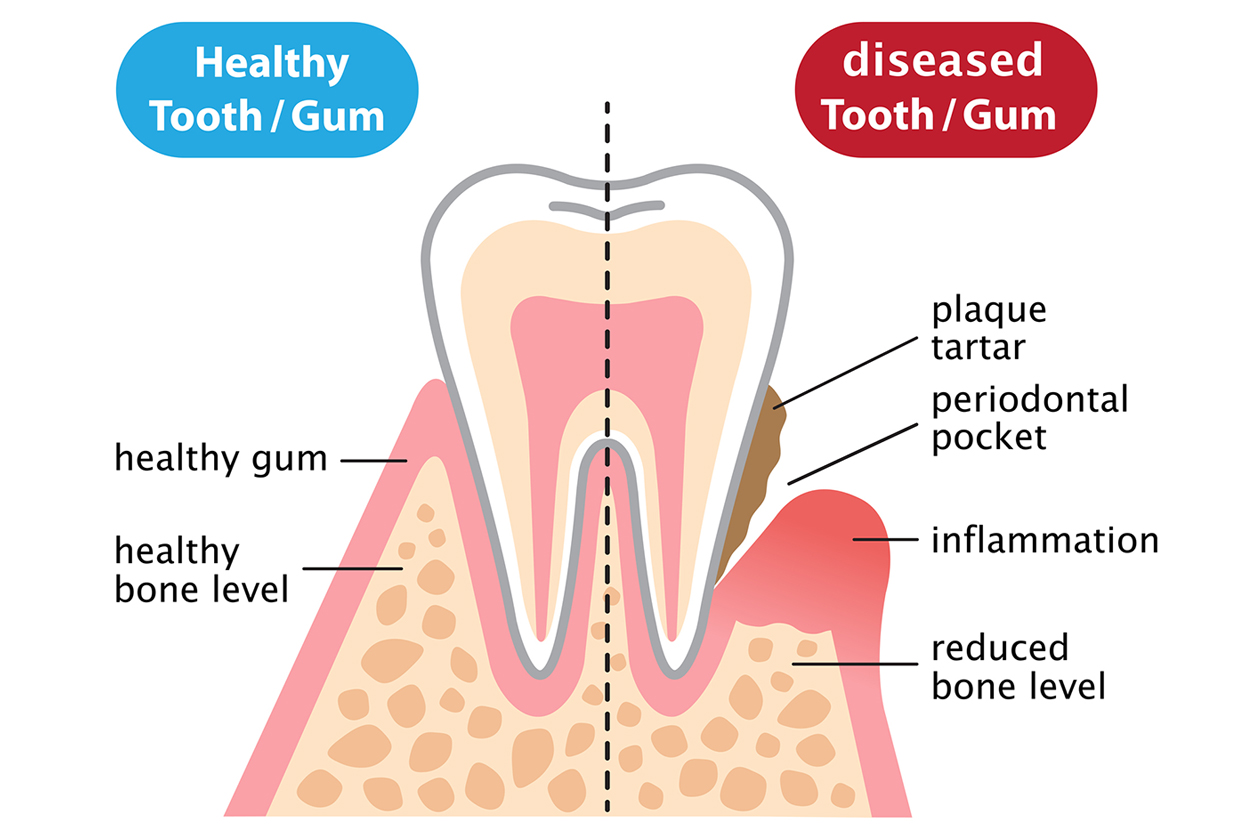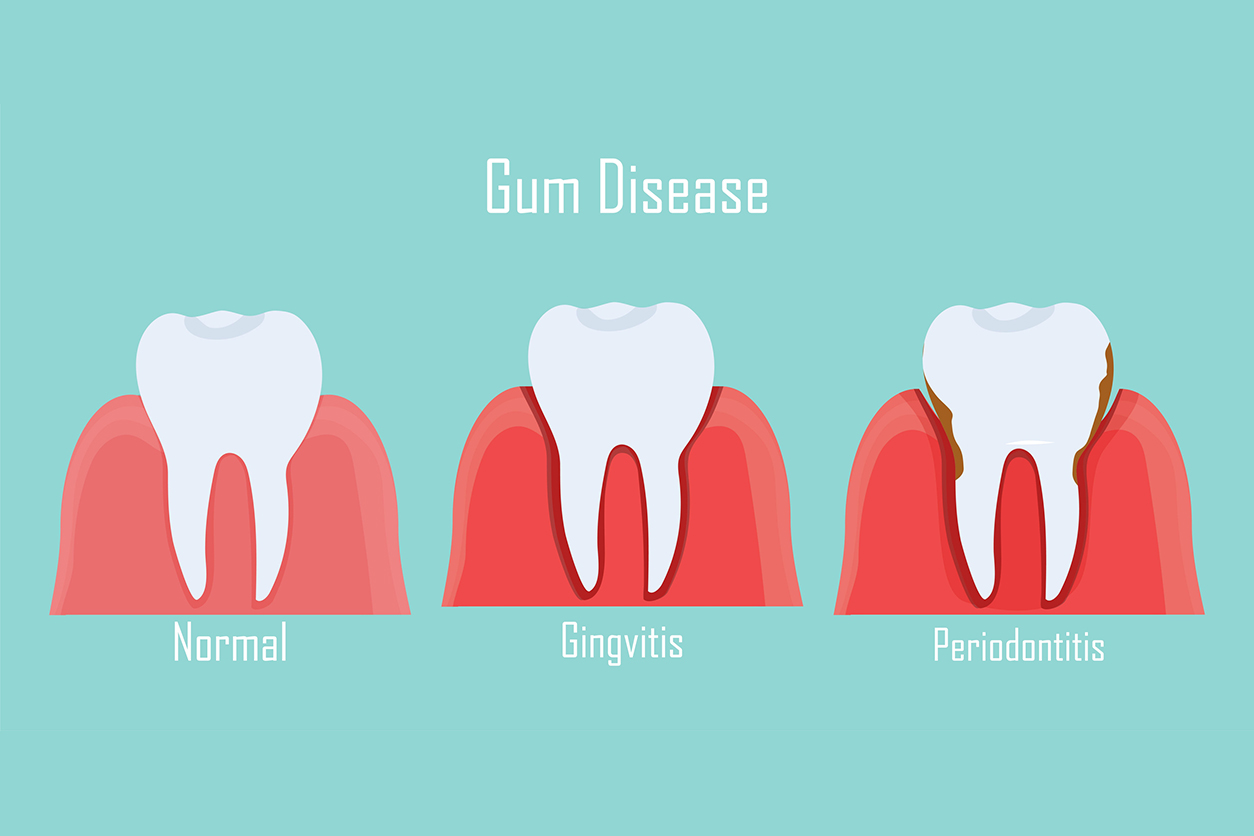Have you ever noticed a little bit of pink in the sink after brushing your teeth — or some blood while flossing your teeth?
In our general dentistry practice at SMILE! Advanced Dental Center, one of the more common issues we see and get asked about is bleeding gums.
There are a number of factors that can cause gums to bleed. Some are minor and can be remedied with simple changes to your daily brushing and flossing practices. And some can be more serious – like gum disease.
Let’s go over seven reasons your gums might be bleeding and what you can do next to ensure optimal oral health.
1. New or wrong toothbrush style
If you’ve recently started using a new toothbrush and are noticing some sensitive or bleeding gums, double-check that you didn’t switch from a softer bristle style to a more firm bristle. Your gums may be telling you that they don’t approve of the new brush.
We almost always recommend soft-bristled toothbrushes, or to consider switching to an electric toothbrush, because both of these options will be much gentler on the gums. An electric toothbrush can also be helpful to moderate the intensity of your brushing.
2. New Flossing Routine or Improper Flossing Technique
First off, if you’ve just started flossing after a long hiatus, that’s an excellent habit you’ve reinstated. But, just know that it’s possible that your gums might be a little sensitive and this could result in minor gum bleeding. The bleeding should stop on its own after a couple of days.
Improper flossing technique can also create bleeding, especially if you are snapping the floss in between your teeth. Use a more gentle in and out motion – or consider a water flosser. Sometimes, it is more about technique when it comes to daily dental care.
3. Gingivitis and Gum Disease
In addition to improper brushing and flossing technique and toothbrush issues, one of the leading causes of bleeding gums is the buildup of plaque at the gumline. This can create sensitivity and inflamed gums, a condition otherwise known as gingivitis. When this happens, gums often become red, swollen, and tender — which can lead to bleeding during routine brushing and flossing.
When not treated, gingivitis can lead to gum disease which is a serious condition and one of the main causes of tooth loss in adults. That’s why it’s so important to have bi-annual dental exams and cleanings where conditions like gingivitis can be detected — and consequently stopped and reversed.

4. Medications
Some pharmaceutical drugs, like blood-thinning medications, can make your gums more prone to bleeding — especially during in-office dental procedures. Even aspirin, birth control pills, NSAIDs (non-steroidal anti-inflammatory drugs), and some blood pressure medications can cause an increased incidence of bleeding gums.
In our general dentistry practice, we always ask our patients about their current medications, and it’s important to always keep your dentist informed about any changes in prescriptions.
5. Smoking and Vaping
We cannot urge our patients enough to stop smoking and vaping. Both of these practices can increase your risk of oral health problems, not the least of which are sensitive and bleeding gums.
6. Other Health Conditions
Bleeding gums can also be indicative of – or a warning sign – of other serious health conditions. While more rare, bleeding gums can occur with diabetes and leukemia.
Your sensitive gums could also be a simple vitamin deficiency — especially Vitamin C and Vitamin K. For example, Vitamin C can boost the immune system while strengthening your bones and teeth. A lack of Vitamin K could prevent your blood from clotting properly, which can also cause gums to be more susceptible to bleeding.
—
Many cases of bleeding gums are relatively minor and can be remedied with a few easy fixes in your daily routine. But, if your gums continue to bleed, it’s important to make an appointment with your dentist to investigate the problem.
We’re here to keep your smile bright and your oral health in the best shape possible. Contact our general dentistry practice with any questions and make sure you have your six-month dental cleaning and exam on the books.


0 Comments